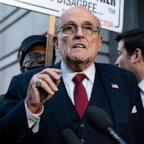Facebook Posts Show What Voters Think About 2016 Presidential Candidates
Clinton, Christie, Bush and Paul all hot topics.
— -- With more than a billion users worldwide, the reach of Facebook is giving new insights into the Election Day sentiments of potential voters in 2016.
As part of a new partnership with ABC News, Facebook has "cracked the code," interpreting users' posts from today as a way to read the presidential election tea leaves for 2016.
Hillary Clinton, widely seen as the likely Democratic presidential candidate, received largely positive mentions, with 59 percent of the comments about her being favorable while 39 percent were negative and 3 percent were neutral.
She dominated the Democratic conversation with more than four times the mentions than her most likely opponent, Vice President Joe Biden.
The Republican field was more evenly split between three of the most likely candidates -- New Jersey Gov. Chris Christie, former Florida Gov. Jeb Bush and Kentucky Sen. Rand Paul.
Of the trio, Paul had the highest favorability, with 60 percent of his mentions being positive as compared to only 37 percent negative.
Bush, the son of former President George H.W. Bush and brother of former President George W. Bush, had more negative comments -- 50 percent -- compared to his positive mentions -- 46 percent.
Christie had the closest split, with 46 percent of his mentions falling into the negative category and 45 percent being considered favorable. The remainder for each (8 percent for Christie, 5 percent for Bush and 4 percent for Paul) were all deemed neutral.
This year's midterms marks the first elections where Facebook has actively analyzed political chatter in real time to see how users were reacting, let alone how they were relating today's votes to their possible votes two years from now.
The 2016 candidates were far from the only fodder for Facebook posts today. The social media site calculated that from this morning until 3 p.m. there were more than 40 million Facebook interactions about politics made by 16 million people.
And Facebook wasn't alone in analyzing the elections in the social media sphere: Twitter also broke down their user's posts to determine what issues mattered most based on gender and age.




